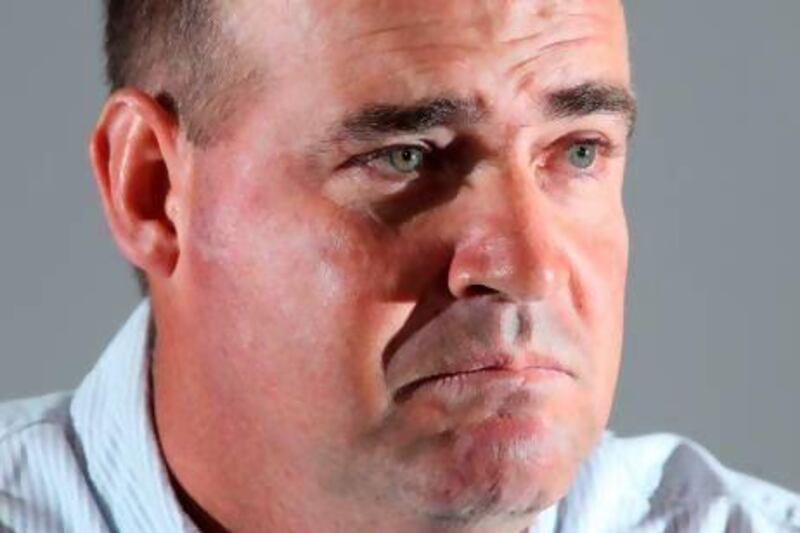What a difference 17 months can make. In January 2012, Australia thumped India by 298 runs in Adelaide to seal a 4-0 series sweep.
Apart from the batting of Virat Kohli in Perth and Adelaide, there was nothing to give India solace. A aging team lacking bowling quality had been torn to shreds, and a few months on from another 4-0 drubbing in England, calls for Duncan Fletcher, the coach, to be sacked were growing ever more strident.
Mickey Arthur, Australia's coach, had got the job primarily because he had overseen a series triumph there while in charge of South Africa (2008). After a season with Western Australia, he had been offered charge of the national team. Victory against India suggested that the future was very bright.
"There has been a focus on India not performing, but we need to have a look at ourselves and say 'maybe we did play some good cricket'," said Arthur in an interview with ESPNCricinfo after the series. "We need to give ourselves a pat on the back.
"We know it is just the start of this journey though, we're nowhere near the finished article as a Test team, there's a lot of room for improvement, a lot of things we can do better, and it is the start of what could be a very exciting journey."
Fast forward to June 2013. Fletcher's Indian side have just won the Champions Trophy, winning five games in succession. A few months earlier, they trounced Australia 4-0 at home, with a side much changed from that which had been embarrassed a year earlier.
New faces like Shikhar Dhawan and Ravindra Jadeja had come into the side, imbuing it with the sort of energy that had been so lacking in Australia.
As for Australia, another home series had been lost against South Africa, with defeat in Perth undoing the good work done in Brisbane and Adelaide, where Australia dominated without being able to win.
The debacle in India had involved controversy as well, with four players stood down from the third Test in Mohali for not completing "homework".
Even that paled into insignificance next to what happened when the team arrived in England this June.
The Champions Trophy title was surrendered without so much as a whimper, and on-field underachievement was allied to red faces off the park as David Warner, the out-of-form opener, got needlessly involved in an incident in a Birmingham pub hours after the team had been thrashed by England.
When James Sutherland, Cricket Australia's chief executive, branded Warner's conduct "despicable" and asked questions of the team management, you knew that Arthur's card wasn't going to be marked indulgently. Few, though, could have foreseen that he would be out of a job 16 days before the start of the Ashes series.
"When you take on the elevated role of head coach you drive the train within the team," said Arthur after being informed that he had been replaced by Darren Lehmann, one of the stalwarts of the all-conquering Australian side of a decade ago. "Ultimately if it is not functioning you are the one who takes the blame."
Even as the Arthur train went off the rails, the Fletcher locomotive has been gathering momentum after a nightmare first 18 months in charge.
Unlike Arthur, who quite liked being behind a microphone, talking about his coaching philosophy, Fletcher is the modern-day Sphinx, who shuns most media interaction.
All you get to know about the Fletcher way is what you hear from the players. The feedback, whether in South Africa, where he made his home, or India is usually the same. Players constantly talk of his ability to spot minor malfunctions and suggest solutions.
As a man-manager, Gary Kirsten, who counts Fletcher as a mentor, was peerless. Even with a team whose approach to fitness wasn't always admirable, he managed to coax a World Cup win.
Fletcher's strengths are more on the technical side, and the alliance with MS Dhoni, the captain, has made the transition from old to new. The last straw was probably a 2-1 Test series defeat to England late last year. It was quite clear that a group of players had come to the end of the road, or at least reached a major fork.
After that setback, and over the course of two one-day series that followed, change was swiftly enforced. Out went tired legs and jaded minds, and in came characters like Dhawan, with his pirate looks and buccaneering strokeplay.
India still doesn't have the fast bowling prowess that was the cornerstone of Fletcher's success with England. But the huge improvement in fielding is a sign that he finally has a side that he can work with. For him, and Arthur, life has come full circle.





